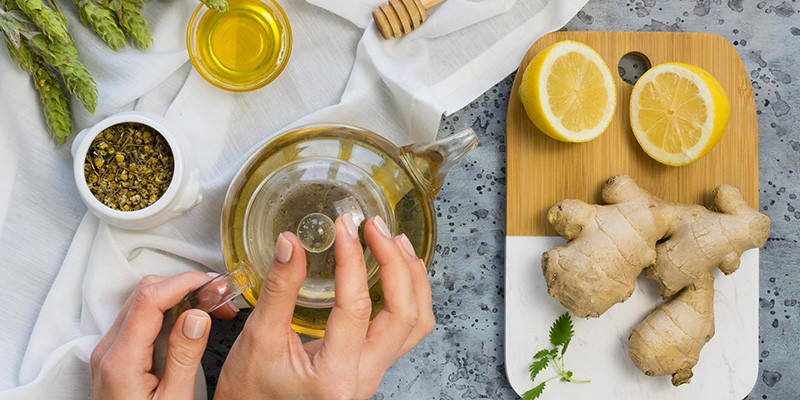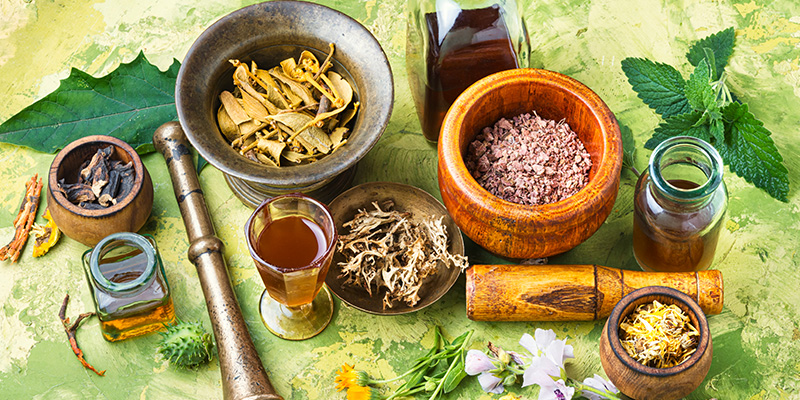
Chronic cough can be a persistent and bothersome condition that significantly affects one’s quality of life. While conventional medicine offers various treatment options, Ayurveda, the ancient Indian system of medicine, provides a holistic approach to addressing chronic cough and promoting overall respiratory health. In this article, we will explore Ayurvedic treatments, key herbs, and formulations, along with lifestyle recommendations to manage Chronic Cough effectively.
Understanding Chronic Cough
Chronic cough is defined as a cough that lasts for more than eight weeks in adults or four weeks in children. It can be caused by various factors, such as respiratory infections, allergies, asthma, and gastroesophageal reflux disease (GERD). Ayurveda views chronic cough as a manifestation of underlying imbalances in the doshas, particularly Vata and Kapha.
Ayurvedic Perspective on Chronic Cough

According to Ayurveda, chronic cough is associated with an imbalance in Vata and Kapha doshas. Vata represents the air and space elements, while Kapha represents the water and earth elements. Imbalances in these doshas can lead to excessive dryness (Vata) or congestion (Kapha) in the respiratory system, resulting in persistent coughing.
Causes of Chronic Cough
- Respiratory Infections: Chronic cough can be a lingering symptom of respiratory infections such as bronchitis, sinusitis, or pneumonia.
- Allergies and Asthma: Allergic reactions and asthma can trigger chronic cough by irritating the airways.
- Gastroesophageal Reflux Disease (GERD): Acid reflux from the stomach can cause irritation in the throat, leading to a chronic cough.
- Smoking and Environmental Factors: Smoking and exposure to environmental pollutants can contribute to chronic cough.
Ayurvedic Treatments for Chronic Cough

Ayurveda offers a comprehensive approach to managing chronic cough by addressing the root cause and balancing the doshas. Here are some effective Ayurvedic treatments for chronic cough:
- Herbal Remedies: Ayurvedic herbs such as Vasaka, Tulsi, Yashtimadhu, and Kantakari have potent expectorant and soothing properties that help alleviate cough and promote respiratory health.
- Dietary and Lifestyle Changes: Following a warm and nourishing diet, avoiding cold and heavy foods, staying hydrated, and practising deep breathing exercises can support the healing process and reduce coughing.
- Ayurvedic Therapies: Ayurvedic therapies like Nasya (nasal administration of medicated oils), steam inhalation, and Panchakarma (detoxification procedures) can help clear the respiratory passages and strengthen the lungs.
Key Ayurvedic Herbs for Chronic Cough

- Vasaka (Adhatoda vasica): Vasaka is a powerful herb known for its bronchodilator and expectorant properties. It helps loosen mucus, relieve congestion, and soothe the airways.
- Tulsi (Ocimum sanctum): Tulsi, or Holy Basil, has antimicrobial and anti-inflammatory properties. It supports respiratory health, reduces cough, and strengthens the immune system.
- Yashtimadhu (Glycyrrhiza glabra): Yashtimadhu acts as a natural demulcent and expectorant. It helps soothe the throat, reduces cough, and supports overall respiratory function.
- Kantakari (Solanum xanthocarpum): Kantakari is a potent herb that aids in expectoration, reduces cough, and helps clear congestion in the respiratory system.
Ayurvedic Formulations for Chronic Cough
- Sitopaladi Churn: Sitopaladi Churna is a classic Ayurvedic formulation that combines herbs like Sitopala (sugar candy), Vamshalochana (bamboo manna), Pippali (long pepper), and Ela (cardamom). It is commonly used to relieve cough, congestion, and respiratory discomfort.
- Talisadi Churn: Talisadi Churna is another well-known Ayurvedic formula that contains herbs like Talisa (Abies webbiana), Vamshalochana, Pippali, and Ela. It helps manage chronic cough, asthma, and bronchitis.
- Kanakasav: Kanakasava is an Ayurvedic liquid formulation that combines herbs like Vasaka, Kantakari, Guduchi (Tinospora cordifolia), and Bharangi (Clerodendrum serratum). It is beneficial in treating chronic cough, respiratory infections, and asthma.
Prevention and Management of Chronic Cough

In addition to Ayurvedic treatments, the following preventive measures and lifestyle changes can help manage chronic cough effectively:
- Hydration and Humidification: Drinking plenty of warm fluids and using a humidifier can help moisturize the airways, reduce irritation, and alleviate coughing.
- Avoiding Triggers: Identifying and avoiding triggers such as allergens, irritants, and cold air can minimize the frequency and severity of coughing episodes.
- Stress Management: Stress-reducing techniques like meditation, yoga, and deep breathing can help control coughing triggered by stress or anxiety.
Ayurveda and Overall Respiratory Health
Ayurveda emphasizes maintaining overall respiratory health to prevent and manage chronic coughs effectively. Following a balanced lifestyle, incorporating Ayurvedic dietary guidelines, and practising pranayama (breathing exercises) can help improve lung strength, enhance immunity, and promote a healthy respiratory system.
Conclusion
We have covered a detailed guide on Chronic Cough and its Ayurvedic Treatment. Chronic cough can significantly impact a person’s quality of life. While modern medicine provides various treatment options, Ayurveda offers a holistic approach that addresses the root cause and aims for long-term relief. By incorporating Ayurvedic principles, herbal remedies, dietary recommendations, lifestyle modifications, and breathing exercises, individuals can manage chronic cough effectively and improve their overall respiratory health.
FAQs
Can Ayurvedic treatments completely cure chronic cough?
Ayurvedic treatments aim to address the root cause of chronic cough and provide symptomatic relief. However, the outcome may vary depending on the individual’s condition and adherence to the recommended treatment plan.
Are Ayurvedic herbs safe to use for chronic cough?
Ayurvedic herbs are generally safe when used as directed and in consultation with a qualified Ayurvedic practitioner. However, it’s essential to inform your healthcare provider about any existing medical conditions or ongoing treatments.
Can dietary changes help with a chronic cough?
Yes, dietary changes play a crucial role in managing chronic cough. Avoiding cold and heavy foods, consuming warm and nourishing meals, and staying hydrated can provide relief and support respiratory health.
Is Ayurvedic treatment suitable for children with chronic cough?
Ayurvedic treatment can be beneficial for children with Chronic Cough. However, it is important to consult a qualified Ayurvedic practitioner for appropriate dosages and formulations suitable for children.
How long does it take to see results with Ayurvedic treatment for Chronic Cough?
The time required to see results may vary depending on the individual’s condition, severity of symptoms, and adherence to the recommended treatments. It’s important to follow the treatment plan consistently and consult with an Ayurvedic practitioner for personalized guidance.
Can Ayurvedic treatments be used alongside conventional medicine for Chronic Cough?
Yes, Ayurvedic treatments can be used in conjunction with conventional medicine for Chronic Cough. It is advisable to consult with healthcare professionals from both disciplines to ensure safe and effective integration.




